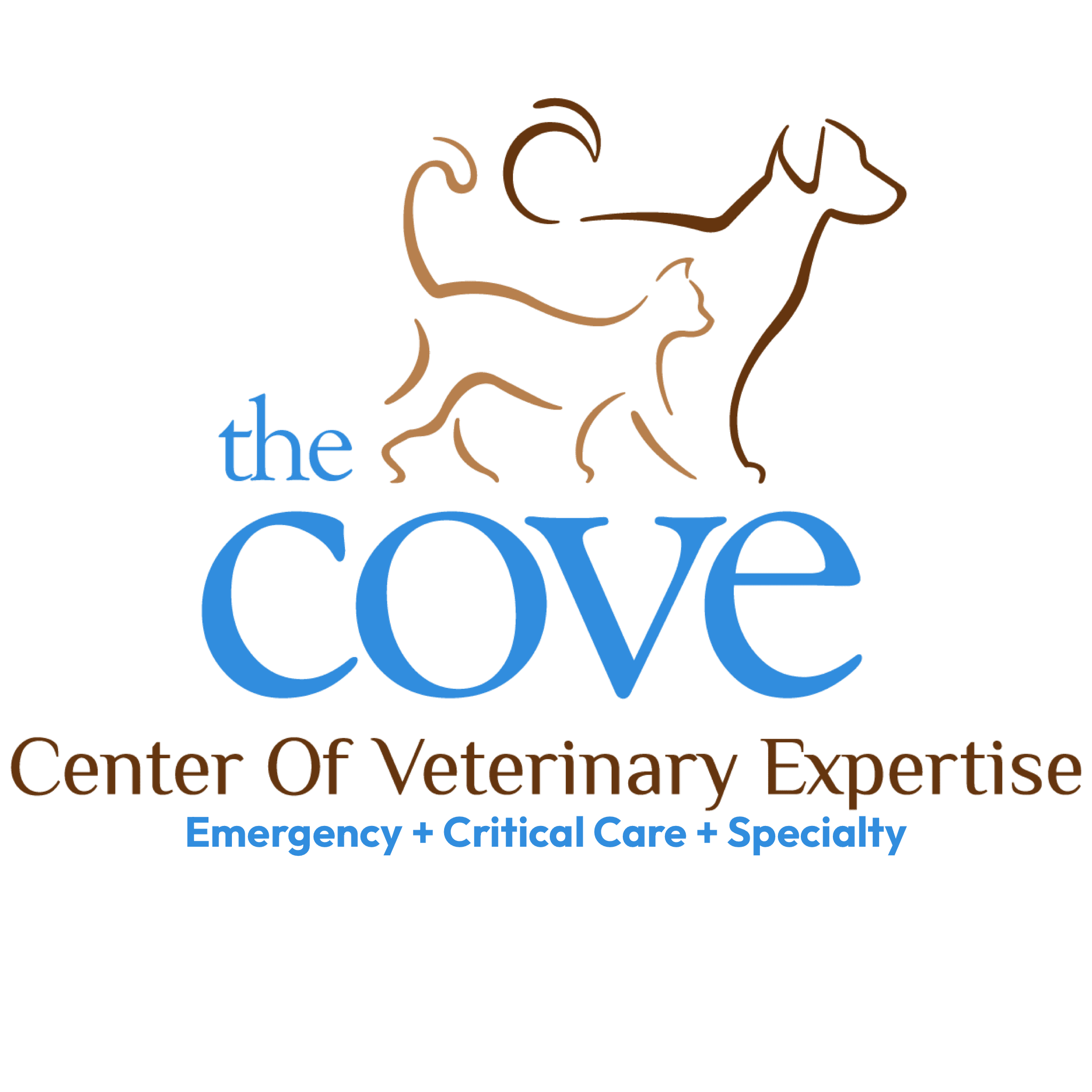Cardiology at The COVE: A Spotlight on Heart Health
February is the month of flowers and chocolate (not for pets, please!), but it’s also the month of hearts in more ways than one. February also is American Heart Month, and for good reason. The American College of Veterinary Internal Medicine (ACVIM) estimates that up to 10% of dogs in the United States will experience some form of heart disease during their lives, which means heart disease in pets is more common than one might think.
This month is the perfect time to explore heart conditions in pets and learn the warning signs of cardiac disease, what to do if you suspect a problem, and how experts at The COVE can help.
Cardiology for Pets
Like us, pets can experience several diseases of the heart or lungs, and these problems can occur in young and older animals. Early signs of heart disease may present symptoms such as weakness, shortness of breath, increased breathing rates, exercise intolerance, and coughing while at rest.
Heart conditions in pets can include, but are not limited to:
- Cardiac arrhythmias (problems with the rate and/or rhythm of an animal’s heart)
- Cardiac tumors
- Congenital (present at birth) or acquired (develop over time) heart defects
- Congestive heart failure (CHF)
- Coughing and other breathing problems
- Degenerative mitral valve disease (age-related changes to the valves in the heart)
- Heart muscle disease (dilated cardiomyopathy or hypertrophic cardiomyopathy)
- High blood pressure (hypertension)
- Pericardium diseases (sac surrounding the heart)
- Pulmonary hypertension (high blood pressure in the lungs)
If you think your pet is experiencing symptoms related to the conditions above, schedule an appointment with your primary care veterinarian, who may refer you to a board-certified veterinary cardiologist.
A board-certified veterinary cardiologist, like our own Merilee T. Small, DVM, DACVIM (Cardiology), is a veterinarian who focuses solely on diagnosing and treating diseases of the heart, lungs, and respiratory systems. To become a board-certified veterinary cardiologist, candidates must earn their veterinary medical degree, followed by a one-year internship, three years of residency training, and rigorous board examinations.
Treatment of Heart Disease in Pets
The best outcome for a pet’s optimal quality of life often depends on identifying and diagnosing heart disease early. We are fortunate to have access to the most advanced diagnostic and therapeutic tools for pets with heart conditions.
The COVE offers a full range of advanced diagnostic and treatment services for dogs and cats with heart conditions, including:
- Acute and chronic medical management
- Digital thoracic radiography (chest X-rays)
- Echocardiography (ultrasound of the heart)
- Holter and event monitoring (24-hour ECG monitoring)
- Non-invasive and invasive blood pressure monitoring
- Outpatient and inpatient cardiology care
- Pacemaker interrogation and monitoring
Dr. Small may consult with your primary care veterinarian and review any x-rays and lab work from your family veterinarian if provided. Once these diagnostics have been completed, she can make specific treatment recommendations. Because heart disease is a lifelong condition, we aim to provide long-term medical management and support for a pet’s cardiac disease.
When To See A Cardiologist
Your pet may benefit from seeing a veterinary cardiologist in any of these situations:
- Your family veterinarian hears a heart murmur or arrhythmia during an examination
- Your pet has a heart condition that your family veterinarian has not been able to diagnose clearly
- Your pet is suspected of having congenital heart disease
- Your pet’s heart condition isn’t improving
- Your pet is predisposed to heart disease
Cardiac disease is a complex condition and having the support, extensive training, and expertise of Dr. Small and her team on your side can help you understand your pet’s diagnosis and provide the best possible care for the best outcome.
If you have any questions about veterinary cardiology or The COVE, please call us anytime at (757) 935-9111. We are here to help keep your pet’s heart healthy and strong!
About Us
The COVE’s veterinarians and staff wholeheartedly embrace the core values of community, collaboration, commitment, compassion, and integrity. This focus ensures that pets, the people who love them, and their primary care veterinarians have as positive and affirming a healthcare experience as possible, regardless of the circumstances that bring us all together.
